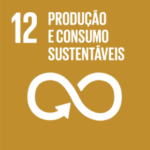
Chefs on Fire. In this festival, leftover food is transformed into energy
Here comes another edition of Chefs on Fire, one of the most important gastronomic festivals in the country. In addition to the sustainability actions that
We didn't find any happenings mapped to your criteria.
Try the traditional search to find articles not yet mapped with RUA.
We didn't find any happenings mapped to your criteria.
Try the traditional search to find articles not yet mapped with RUA.
We didn't find any happenings mapped to your criteria.
Try the traditional search to find articles not yet mapped with RUA.
We didn't find any happenings mapped to your criteria.
Try the traditional search to find articles not yet mapped with RUA.
The question is posed by Kate Raworth in her book Donut Economics and the answer seems to be a resounding yes. Let’s find out more about this alternative economic model.
Kate Raworth invites us to reflect on a mission of progress that is mostly associated with the idea of economic growth. Her book “The Donut Economy” talks above all about the exercise of defining limits and rethinking metrics.
But first, let’s remember the metaphor of the donut. The inner ring of the donut represents the basic human needs that everyone needs, including water, food, health, education, income and work, peace and justice, political voice, social equity, gender equality, housing, networks and energy.
The outer ring shows the limits that humanity must not exceed in order to remain sustainable. It includes elements such as climate change, ocean acidification, chemical pollution, nitrogen and phosphorus loading, freshwater abstraction, land conservation, biodiversity loss, air pollution and ozone depletion.
Its circular donut shape signifies the need to find a balance between the “social base” and the “ecological ceiling”, which is referred to as “the safe and just space for humanity”, where well-being is developed for both people and the planet.
Anything that falls outside the scope of the “donut”, whether it’s a deficit in the social base or an excess in the ecological ceiling, could prove catastrophic for humanity in the form of irreversible poverty or environmental damage, which makes it important to maintain the balance.

According to the author, the figure of the donut, appealing to many for obvious reasons, gives us clues as to what the future of humanity and its idea of progress should be. The appetizing mass of the donut is described as the metric of proportion. In this sense, humanity should try to stay within the dough, that is, between human dignity and social cohesion (the inner limit of the dough) and the limits of planet earth (the outer limit of the dough).
In “The Donut Economy”, it is suggested that a society’s progress should no longer be solely linked to the mission of infinite and disproportionate economic growth, but should be identified with a mission of balance and a sense of proportion. This is the right read if you’re looking to learn more about the nuances of the economic system we live in and the kind of transitions that could be put in place to reduce its harmful impact on the planet.
What’s more, this book has the particularity of not having stuck to the confines of sheets of paper. DEAL or the Doughnut Economics Action Lab is the organization responsible for transforming the idea of donut economics into transformative actions. The Lab has multiple working groups that have at their disposal a series of free tools that allow them to apply the Donut metric. Portugal is represented in several hubs throughout the country, such as Porto, Lisbon and Portalegre.
On the DEAL platform you can find a wealth of news, tools and events related to the implementation of a donut-shaped future.


Here comes another edition of Chefs on Fire, one of the most important gastronomic festivals in the country. In addition to the sustainability actions that

From July 31st to August 4th there will be another edition of the Tradidanças festival, the one that gets everyone of all ages dancing for

Greenpeace opens office in Portugal and brings the icebreaker Artic Sunrise. The organization’s focus will be on fighting fires and protecting biodiversity, especially the oceans.

This article promotes an action that encourages the reduction of waste generation through prevention, reduction, recycling, and reuse.
➡️ To discover more businesses that are aligned with Sustainable Development Goal 12 “Sustainable Production and Consumption” click here.
➡️ For news, tips and interviews about this topic, click here.
➡️ Want to know more about the 17 United Nations Sustainable Development Goals? Click here
Esta publicação também está disponível em:
![]() Português (Portuguese (Portugal))
Português (Portuguese (Portugal))

